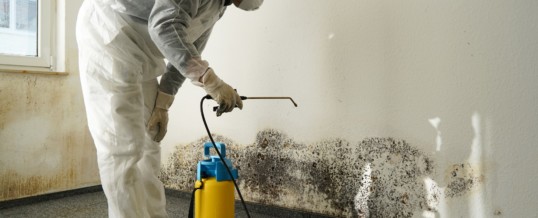
38% of wet basements are likely to produce mold. You may know that wet basements can cause a lot of damage to your home. Yet, did you know they can cause issues to your health as well?
Water that leaks into your basement can cause havoc on your life. When it comes to leaking water, you need to play it safe, especially if black mold or radon are involved. Below we’ll review different factors that can contribute to health problems.
Black Mold
Leaking water, which can lead to standing water, can cause many different problems. The biggest issue that can arise is the growth of mold.
There are different types of mold out there. Generally, when it comes to mold, people are talking about black mold. This mold is also known as Stachybotrys chartarum, Stachybotrys atra, or toxic mold.
The mold will release spores into the air causing you to get sick. This is especially true if you have a compromised immune system. If you have a weak immune system, you could get an infection in your lungs.
Moreover, it can worsen any lung conditions you may already have, such as asthma. On top of that, if you have allergies of some sort, it can worsen your symptoms.
Common respiratory symptoms of mold growth include:
- Eye irritation (red, itchy, burning sensation)
- Skin rashes
- Coughing/sneezing/wheezing
- Sore throat
People who have the highest risk of acquiring symptoms:
- Infants/children
- The elderly
- Those with asthma or allergies
- Anyone with a weak immune system
Bacteria
A damp basement makes the humidity in the air increase. If someone is sick in your home, the bacteria from their sickness will get filtered through the air. This can lead the bacteria down into your basement.
Any bacteria from that illness will become encapsulated in the humid air and grow. The humidity of the air and the darkness of your basement will contribute to the growth of the bacteria.
If the bacterium leaves the basement or if you enter your basement, more people in your home can become sick. On top of that, it can exacerbate someone’s allergies.
You can help prevent/reduce mold, fungus, or any form of bacterial growth in your basement even if there is a leak. Keep your basement’s relative humidity level between 30%-50% to prevent unwanted growth.
Pests
Leaking water and especially stagnant water can lead to pests entering your home. Pests can carry diseases that can lead to you getting sick.
This is especially true for bugs. Certain types of insects breed in stagnant or slow running water. Insects can spread bacteria and viruses throughout your house.
The biggest offenders are mosquitos. They’re carriers of diseases that can spread to you and your family if bitten.
Another big offender that will move into your home is mice/rats. Most of the time, the damage they’ll cause will be to your home. It’s their fecal matter you need to worry about.
Fecal particles can enter the air and be breathed in. These particles can spread bacteria and viruses. As with mold, if you have a compromised immune system, you’re at greater risk of having a more severe reaction.
The sooner you fix the leak and clear away the standing water, the sooner these pests will leave your home.
Dust Mites
As with bacteria, dust mites love humid, dark, and damp places. Dust mites are microscopic creatures that live in the dirt and dust that build up in your basement.
As with any issue on this list, it won’t stay confined to your basement. Dust mites, pests, mold, etc. like to spread.
Not only will they be all over your home, but so will their skin and fecal matter. The skin and fecal particles will spread throughout the air.
They may seem harmless, but if you’re allergic to dust mites it can cause issues. Common allergic reactions include runny noses, sneezing, and watery eyes. If you have asthma, you may see your asthma symptoms worsen.
To keep these critters at bay, keep your basement’s temperature below 70°F. Moreover, make sure the relative humidity is below 50%.
On top of that, introducing more sunlight to your basement may help remove dust mites. What’s more, keeping your basement clean will prevent them from finding homes.
Radon
Radon may not be something you have to deal with, but there’s always a chance. Radon is an odorless and tasteless gas, which makes it very hard to detect.
Radon is produced when uranium decays in water and soil. It will emit a gas that will come to the surface and into the air.
If you have a water leak, radon could be coming in through the water or any cracks that leak may have created. Small amounts of radon isn’t harmful to your health, but in a basement, there is very little ventilation. This leads to a buildup of radon which can cause serious health problems.
Radon is known for causing lung cancer and is the number one leading cause of lung cancer for people who don’t smoke. Overall, it’s the second leading cause of lung cancer.
To know if radon is a problem in your basement, install a radon detector.
Is Your Home Safe?
If you don’t have any of these warning signs yet but have a leak, you should get the issue resolved quickly. These problems, especially black mold and radon, are no joke.
To better protect your family and loved ones, water leaks should be fixed quickly. A small problem can become a larger one faster than you might think.
Review our blog to learn the common reasons your basement may be leaking.
ShareFEB
